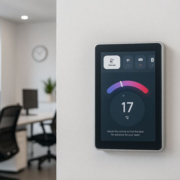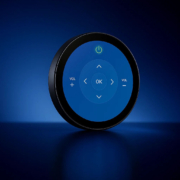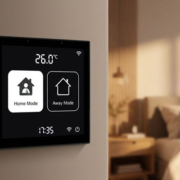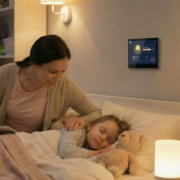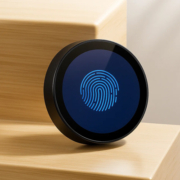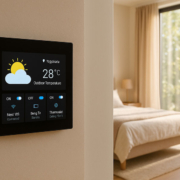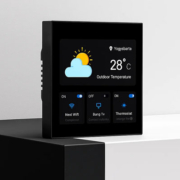Android Touch Panel PCBA Customization
In today’s rapidly evolving technological landscape, customization has become a key requirement for businesses looking to develop products that meet their specific needs. One of the most essential aspects of any touch panel solution is the Printed Circuit Board Assembly (PCBA), which forms the backbone of the entire system. When it comes to Android touch panel PCs, the ability to customize the PCBA ensures that the final product is optimized for specific functionalities, performance standards, and industry requirements. This article explores the importance of Android touch panel PCBA customization and how businesses can benefit from tailored solutions for diverse applications.
What is PCBA in Android Touch Panels?
PCBA (Printed Circuit Board Assembly) refers to the board that holds and connects all the critical electronic components required for the functionality of the Android touch panel. It includes microprocessors, memory chips, sensors, communication interfaces (like RS485, USB, Ethernet), and power management components. In essence, the PCBA is the heart of any Android touch panel, enabling it to function as a fully integrated system for control, monitoring, and data processing.
Customization of the PCBA allows manufacturers to design the touch panel with the precise features needed for specific industries or applications, ensuring that the product meets unique requirements for performance, connectivity, and durability.
Why is Android Touch Panel PCBA Customization Important?
Tailored Functionality
- Different industries have different needs, and a one-size-fits-all approach doesn’t always work when it comes to technology. Customizing the PCBA allows businesses to integrate specific features required for their application, such as advanced sensors, custom communication protocols, and specialized processing power.
- For example, if a business requires a smart home control panel with advanced Zigbee or Z-Wave support, PCBA customization ensures the panel has the necessary communication chips and circuitry for seamless integration with IoT devices.
Enhanced Performance
- The performance of an Android touch panel is largely determined by its PCBA. By customizing the components, businesses can select specific chips, processors, memory types, and interfaces that offer the right balance of power consumption, processing speed, and responsiveness.
- For industrial applications, this might mean using a high-performance CPU for processing large amounts of data quickly or optimizing the power management system to extend the device’s battery life.
Cost Efficiency
- Customizing the PCBA allows businesses to optimize costs by selecting the right components for their specific needs, avoiding unnecessary features that could increase the price. For example, a retail kiosk might not need the same processing power as a medical device, and customizing the PCBA ensures that the business only pays for the performance it truly needs.
- This can lead to significant savings in the long run, especially for mass production, while still maintaining high product quality.
Industry-Specific Requirements
- Different industries require different certifications, components, and performance benchmarks. Customizing the PCBA of an Android touch panel ensures that it adheres to the specific regulatory standards of the industry it is meant for.
- For instance, medical-grade devices require strict compliance with FDA regulations and other health safety standards, while industrial automation solutions may require components that can withstand extreme environmental conditions like high temperatures, moisture, or vibration.
- This tailored approach ensures the touch panel meets industry standards and performs optimally in specific conditions.
Improved Reliability and Durability
- The durability of the Android touch panel is heavily influenced by its PCBA design. Customizing the PCBA allows businesses to choose more rugged components that are suitable for harsh environments. For example, selecting high-quality capacitors and resistors ensures that the device can withstand high temperatures, humidity, and vibrations, which are typical in industrial settings.
- Industrial PCs or outdoor kiosks require special considerations for electromagnetic compatibility (EMC), shock resistance, and extended operational lifespan. Customizing the PCBA ensures the panel’s longevity and reliability in such conditions.
Key Customization Options for Android Touch Panel PCBA
Processor and Memory
- Processor customization allows businesses to select the right CPU for their application, whether it’s a high-performance quad-core processor for intensive tasks or a lower-power ARM processor for more efficient operation.
- Memory customization involves choosing the right RAM and ROM for the touch panel’s needs, whether it’s for real-time data processing or handling multimedia content like videos and images.
Connectivity Options
- Android touch panels often need to interface with a wide variety of external devices. Customizing the PCBA can include adding support for various connectivity options such as RS485, Wi-Fi, Bluetooth, Zigbee, Ethernet, or PoE (Power over Ethernet).
- For example, RS485 is widely used in industrial applications for remote sensing and PLC communication, while Ethernet is ideal for networked environments where devices need to be interconnected for data exchange or remote control.
Power Management
- In applications where battery life is critical, power management becomes a priority. Customizing the power system on the PCBA can help optimize energy efficiency by selecting low-power components, implementing power-saving modes, and using more efficient battery management systems.
Touchscreen and Display
- Customizing the touchscreen interface to support multi-touch functionality, high-resolution displays, or specific screen technologies (e.g., capacitive touch, resistive touch, OLED, or LCD displays) ensures the final product provides the best user experience.
- Additionally, brightness control, ambient light sensors, and anti-glare coatings can be customized for different environments, whether indoors or outdoors.
Enclosure Design
- The physical design of the enclosure is just as important as the PCBA itself. For applications in extreme environments, businesses may need to customize the housing for protection against dust, water, or harsh chemicals. IP-rated enclosures are often required for industries like manufacturing, logistics, and healthcare.
Sensors and I/O Ports
- Depending on the application, additional sensors or input/output (I/O) ports may be needed. For example, integrating temperature sensors, motion detectors, or proximity sensors allows the Android touch panel to gather environmental data or control external devices.
- Customization can also include adding specific I/O ports for USB, HDMI, or audio interfaces, depending on the desired functionality.
Applications of Android Touch Panel PCBA Customization
Industrial Automation
- Custom Android touch panels with specific communication protocols like RS485 and Ethernet are ideal for controlling machinery, robotics, and other automated systems in factories and warehouses. The ability to tailor the PCBA ensures that the panel can handle real-time data from PLCs and sensors, offering a reliable user interface for machine operators.
Healthcare
- Android touch panels used in medical devices require strict adherence to health and safety standards. Custom PCBA solutions can integrate patient monitoring systems, medical imaging devices, or point-of-care solutions, offering hospitals and clinics a user-friendly interface with real-time data and remote monitoring capabilities.
Smart Homes
- In the smart home industry, Android touch panels can control lighting, HVAC systems, security, and other IoT devices. Customizing the PCBA for this purpose allows for specialized communication protocols (like Zigbee, Z-Wave, or Bluetooth) to ensure seamless integration with other smart devices in the home.
Retail Kiosks
- Custom touch panels for interactive retail kiosks require high-performance processors and touch interfaces to manage payment systems, digital signage, and customer interactions. PCBA customization ensures that these kiosks can function efficiently in busy retail environments.
Android touch panel PCBA customization is a game-changing solution for businesses seeking tailored products that meet specific industry requirements. Whether for industrial automation, healthcare, smart homes, or retail, customizing the PCBA allows businesses to optimize performance, functionality, and durability while ensuring cost-effectiveness. By selecting the right components, ensuring seamless connectivity, and incorporating industry-specific features, businesses can develop Android touch panels that provide superior control, monitoring, and user experience.

